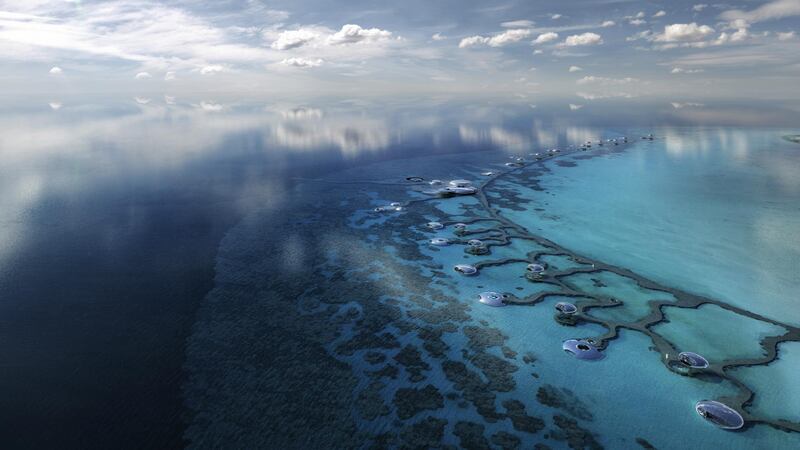Despite challenges presented by the Covid-19 pandemic, Saudi Arabia's Red Sea Development Company's mega-project is on track to welcome its first guests by the end of 2022, its chief executive said.
The developer, which is wholly owned by the kingdom’s Public Investment Fund, has awarded contracts worth 7 billion Saudi riyals ($1.87bn) to date, John Pagano said, adding that "at least four to five hotels will be completed by the end of 2022".
The tourism and nature reserve, spread over 28,000 square kilometres across more than 90 islands, will be ”greener, smarter and less crowded” than other global destinations that may compete for guests, he said.
Saudi Arabia, Opec’s biggest oil producer, has shelved some projects in the wake of lower oil prices and an economic slowdown as a result of the pandemic, but is pushing ahead with major schemes vital to its Vision 2030 programme.
The Red Sea project is regarded as central to the Saudi Vision 2030 economic plan that aims to diversify the economy away from oil, Mr Pagano said from the Future Hospitality Summit being held online from Riyadh.
The country is aiming to have the sector contribute more than 10 per cent to Saudi Arabia’s gross domestic product by 2030. However, the current 3.4 per cent indicates that “tourism is under-represented in the kingdom", Mr Pagano said.
The first phase of the mega-project, set to be completed in 2023, will include 16 hotels with 3,000 keys, residential properties, leisure, commercial and entertainment amenities, a new airport and supporting infrastructure.
Looking to protect critical habitats in the Red Sea, 5,700 square kilometres of the surrounding waters have been preserved, the largest conservation zone at sea in the Middle East, Mr Pagano said.
The entire reserve will be powered by renewable energy and will aim to sequester carbon both through nature-based methods and technology.
"Carbon neutral is not enough,” Mr Pagano said. “We’re experiencing a global crisis as far as the climate and the planet is concerned."
The entire Red Sea destination is on track to be completed by 2030 when 22 islands and six inland sites will be developed. There will be a total of 48 hotels but the developer has pledged to limit guest numbers in order to avoid over-tourism and a strain on the environment.
Other projects that are under construction in the kingdom include the $500bn Neom business and industrial zone that borders the Red Sea project and extends into Egypt and Jordan, as well as a mega-project for an entertainment and sports destination, named Qiddiya, near Riyadh.








